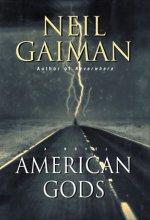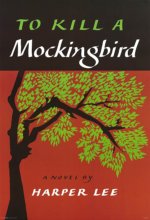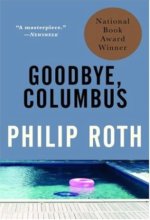
American Gods - Neil Gaiman (2001)
As much as I want to love Neil Gaiman's work, I'm having a difficult time with it. I've been reading the Sandman graphic novel series over the past few months, and while there are elements of it that are hit or miss, it has mostly been great thus far. His novels are another story. Neverwhere was haphazard and featured some of the least interesting characters I've ever come across. It wasn't a bad book; it had some redeeming qualities. American Gods bests Neverwhere in that the characters are slightly cooler and the story is better and more complex. The book's premise and overarching plot are actually quite awesome. An ex-convict is released from jail to find that his wife died of shady circumstances in a car wreck. Odin, the Norse god of war, hires him as a sort of bodyguard leading up to a battle that is to take place between the "old" gods and the "new," American gods (such as media). Actually, that sounds pretty nonsensical and ridiculous, but there are plenty of twists and turns in the plot that I guess ties everything together. I still think the characters are week, and don't get me wrong, I love fantasy, but it runs a little too rampant within the modern setting of this book. There's plenty to like about Gaiman's imagery and style, but his weaknesses (storytelling, character development, prose) really shine through in his novels. Ah well, American Gods was still enjoyable.

To Kill a Mockingbird - Harper Lee (1960)
Believe it or not, this is the first time I've read Harper Lee's famous and important novel, To Kill a Mockingbird. I was not surprised by how much it tugged at my heartstrings while awesome being simply a light, fun read. The feel of Lee's writing and certain parts of the story are reminiscent of Mark Twain, especially the short adventures that occur at the novel's beginning. Lee's portrayal of an Alabama family living through the Great Depression is beautiful, and the way she touches on darker subjects such as racism and rape while still injecting some humor in there is brilliant. As spare and subtle as the story is, Lee's characters are easy to love and invest in. I'm glad I finally got around to reading this classic.

Goodbye, Columbus - Philip Roth (1959)
That Goodbye, Columbus is Philip Roth's debut is pretty mindblowing. The book collects the novella, Goodbye, Columbus and five short stories that showcase Roth's excellent form and knack for subtle and clever storytelling, even as early as his mid-20s. While the actual novella is a very good, slow paced, comical, summer love story that I'm sure was an inspiration to Woody Allen, it is not the best story here. All the short stories were even more impressive, especially "The Conversion of the Jews", "Defender of the Faith" and "Epstein." Throughout the collection, Roth does a great job of underlining the coming-of-age story (or snippets of, in the short stories) with the struggles faced by those Americans of the Jewish faith in the early mid-20th century. This all leads to great drama, and some really funny situations. In Goodbye, Columbus Roth's stories are almost reminiscent of a less depressing, brighter J.D. Salinger, and I would recommend this to pretty much any one of my friends. I can't wait to read more.

No comments:
Post a Comment